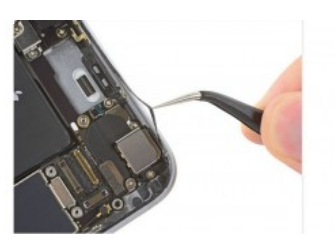Posts
Showing posts from October, 2015
Zuckerberg gets hero rating in IIT-D, insists internet.org is not a villain
- Get link
- X
- Other Apps
India and Africa are two bright spots of hope, opportunities: PM Modi.
- Get link
- X
- Other Apps
BlackBerry Priv Android Apps Hit Google Play, 'Productivity Edge' Leaked.
- Get link
- X
- Other Apps
Meizu rolls out Flyme 5.0 update for MX5.
- Get link
- X
- Other Apps
Xiaomi reportedly working on ‘Apple-inspired’ 3D Touch-like feature.
- Get link
- X
- Other Apps
Only 1 in 9 IIT-Delhi students to get entry to Mark Zuckerberg's townhall.
- Get link
- X
- Other Apps
BMW rolls out new M6 Gran Coupe for Rs 1.71 crore.
- Get link
- X
- Other Apps
Microsoft Fleshes Out Its 3D Capabilities With Purchase Of Havok From Intel.
- Get link
- X
- Other Apps
A New App Called Soon Organizes Your Everyday Bucket List.
- Get link
- X
- Other Apps
Over 1 billion Android devices could be affected by the latest vulnerability.
- Get link
- X
- Other Apps
Apple acquires speech recognition start-up VocallQ to improve Siri.
- Get link
- X
- Other Apps
Scientists develop new technology to derive electricity from photosynthesis.
- Get link
- X
- Other Apps
Apple's iPhone 6s more water-resistant than previous models, says iFixit.
- Get link
- X
- Other Apps
Apple iPhone 6S and 6S Plus releasing in India on October 16.
- Get link
- X
- Other Apps
TRAI taking all measures to protect customer interests.
- Get link
- X
- Other Apps
Reliance Communications to Partner Reliance Jio to Launch 4G Services.
- Get link
- X
- Other Apps
Facebook Updates Profile Options for Mobile Users, Adds Profile Videos.
- Get link
- X
- Other Apps
Infosys, TCS, Other Indian IT Firms Form Consortium to Tap Chinese Market.
- Get link
- X
- Other Apps
Twitter Will Reportedly Name Jack Dorsey As CEO, Bringing Back The Founder’s Instincts
- Get link
- X
- Other Apps





